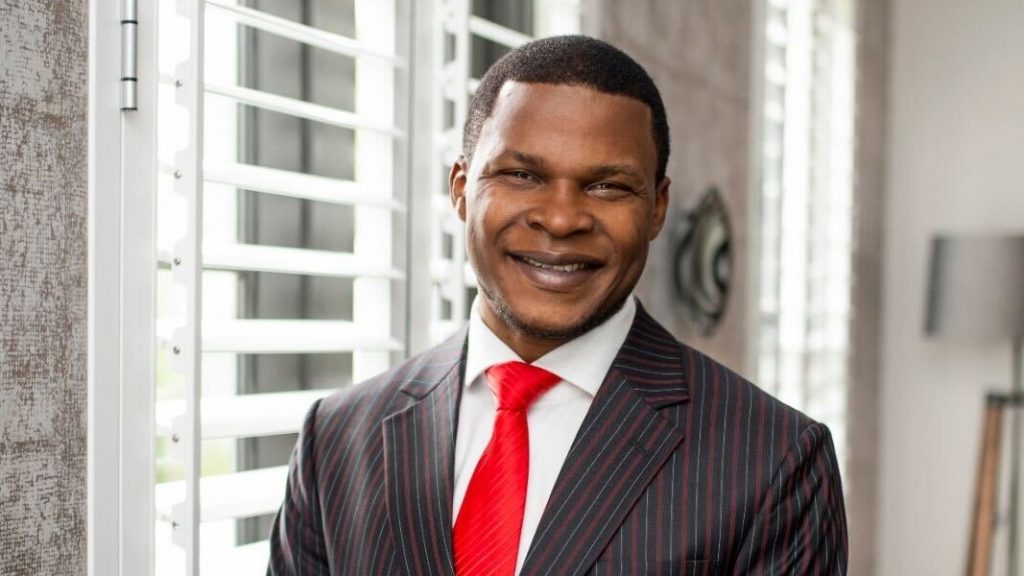Artificial Intelligence is no longer a distant promise or a Silicon Valley experiment. It’s embedded in the now. South Africans are already using generative…
Amazon Bestselling Author NJ Ayuk Outlines an Energy Plan for Africa

Sponsored by Easylink Studio
As the world attempts to respond to the recent energy shakeup in a way that accounts for the Russia-Ukraine war, post-pandemic supply chain issues, and the near-emergence of sustainable solutions, fossil fuels in Africa have become a hot topic of debate. Author NJ Ayuk, executive chairman of the African Energy Chamber, believes there’s a way forward that will not only help the world meet its current energy needs but can also benefit the millions of Africans currently living without electricity.
Ayuk’s book, A Just Transition: Making Energy Poverty History With an Energy Mix, is a finely tuned argument for helping the African people by leveraging the continent’s vast reserves of oil and natural gas.
Author NJ Ayuk lays an argument that favors the 600 million Africans who currently live without access to electricity and the 900 million people on the continent who lack access to clean cooking technologies. Central to his argument is the fact that Africa produces less than 3% of the world’s carbon emissions yet is home to about 17% of the global population.
“We need an energy transition, but it has to be a just energy transition,” he stated. “I think our challenge right now is to figure out a way to be fighting climate change and energy poverty at the same time. I think there is a very Western misconception about the needs of everyday people in Africa, where the dialogue is just based on a desire to save the planet. Yes, we want to save the planet. We all should want that. But climate change and energy poverty are two sides of the same coin.
“We have to do both. We have to make energy poverty history. You can’t talk about denying Africa a way to help 900 million people, most of them women, who are living their lives without having their very basic needs met, because of the emissions that have benefited other countries.”
In addition to writing books and heading the AEC, NJ Ayuk is the founder of the international firm Centurion Law Group, which does much of its legal work in and around the energy sector in Africa.
His experience in the industry has led NJ Ayuk to some policy prescriptions that can help Africa — and the world — fare better in the next century. He believes that by creating an energy mix that allows some countries to continue using fossil fuels while others transition to more sustainable offerings is the right way to move everyone forward.
“When you really look at where we are right now and you look at where we are going, people are saying, ‘Let’s abandon natural gas and just concentrate on a transition to renewables.’ But what does that look like for people in Africa? What are you going to transition from — from the dark to the dark?” he asked. “You need to have something to start with, then you can transition. Africa’s energy emissions are not even up to 3% of the world’s carbon. So [places] like Europe or the United States that are somewhere in the 20s or the 30s, they need to decarbonize and they need to decarbonize fast. Africa needs to be given a chance to industrialize.”
The book comes at a crucial moment in international relations. As Europe continues to seek new sources of energy to replace the fossil fuels that many countries were purchasing from Russia, African reserves have become a key area of interest. This represents a chance to right some of the former wrongs that have been visited on Africa by Western countries while also correcting social injustices that continue to exist.
Many of the social injustices revolved around a community that has long been overlooked, both on a global stage and specifically in Africa.
“We can’t talk about a just energy transition without seeing African women being a big part of that,” NJ Ayuk said. “Let’s be honest: The energy industry has done a horrible job when it comes to anything to do with women. It’s not even something we need to be proud of — we need to be ashamed. Women are still the last hired and the first fired in our industry. Women’s issues have just been very overlooked, and we really hope that when we are talking about a transition, this does not repeat itself.
“Whether it’s with the grain economy or whatever you see, if it’s a replacement of what you’ve seen in the fossil fuel industry with the grain industry, then it’s going to be really despicable. It even happens in the clean energy sector. Women today are still receiving less than 2% of the investments in that sector. We have to change that.”
This article is sponsored and supplied by Easylink Studio.

